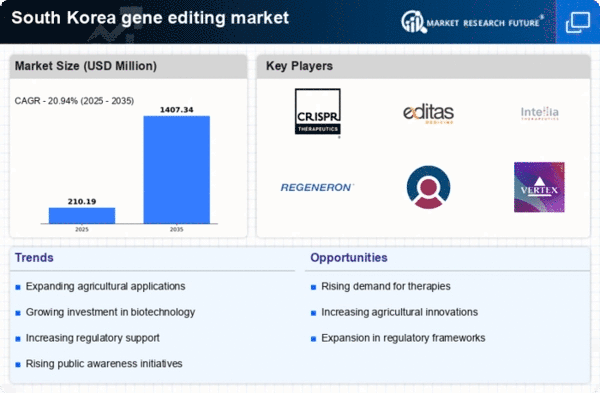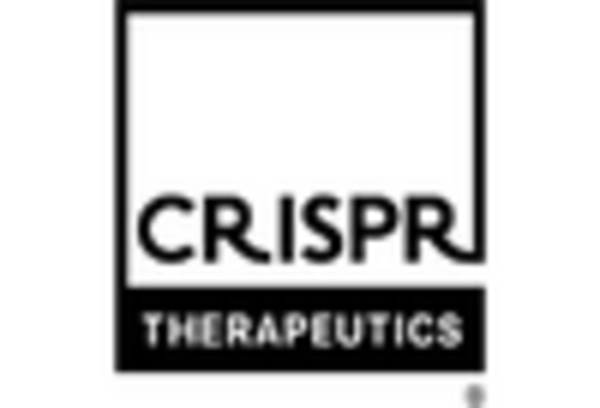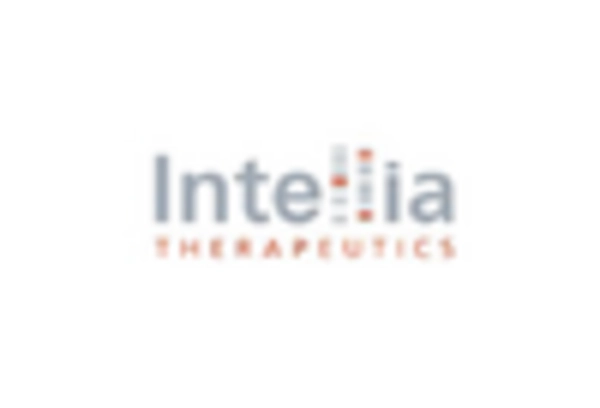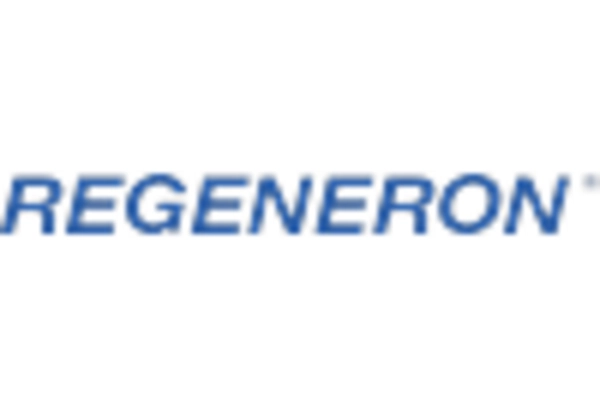Advancements in CRISPR Technology
Recent advancements in CRISPR technology are significantly impacting the gene editing market in South Korea. This innovative gene editing tool has revolutionized the ability to modify DNA with unprecedented precision and efficiency. As researchers and companies continue to refine CRISPR techniques, the applications within the gene editing market are expanding rapidly. For instance, CRISPR is being utilized in agricultural biotechnology to develop crops that are resistant to pests and diseases, thereby enhancing food security. The market is expected to reach a valuation of $1 billion by 2027, driven by these technological advancements.
Collaborative Research Initiatives
Collaborative research initiatives among universities, research institutions, and private companies are fostering innovation within the gene editing market in South Korea. These partnerships are essential for sharing knowledge, resources, and expertise, which can lead to breakthroughs in gene editing technologies. For example, joint projects focusing on gene therapies for rare diseases are gaining traction, with funding from both government and private sectors. Such collaborations not only enhance the research capabilities but also accelerate the commercialization of gene editing solutions, thereby strengthening the gene editing market.
Rising Investment in Biotechnology
The gene editing market in South Korea is experiencing a surge in investment, particularly from both public and private sectors. The South Korean government has allocated substantial funding, amounting to approximately $500 million, to support biotechnology research and development. This financial backing is aimed at fostering innovation in gene editing technologies, which are crucial for advancements in healthcare and agriculture. Furthermore, private companies are increasingly investing in gene editing startups, indicating a growing confidence in the market's potential. This influx of capital is likely to accelerate the development of new gene editing applications, thereby enhancing the overall growth of the gene editing market.
Growing Public Awareness and Acceptance
Public awareness and acceptance of gene editing technologies are on the rise in South Korea, contributing positively to the gene editing market. Educational campaigns and media coverage have played a crucial role in informing the public about the benefits and potential of gene editing. As citizens become more informed, there is a growing willingness to embrace gene editing solutions, particularly in healthcare and agriculture. This shift in public perception is likely to facilitate regulatory approvals and encourage investment in gene editing projects, further propelling the market's growth.
Increasing Demand for Precision Medicine
The gene editing market is witnessing a notable shift towards precision medicine, driven by the rising demand for personalized healthcare solutions. In South Korea, the prevalence of genetic disorders and chronic diseases has prompted healthcare providers to seek innovative treatments that are tailored to individual genetic profiles. The gene editing market is positioned to meet this demand by offering advanced therapies that can modify genes to treat or prevent diseases. As a result, the market is projected to grow at a CAGR of 15% over the next five years, reflecting the increasing adoption of gene editing technologies in clinical settings.
















